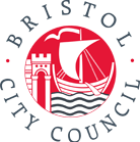Study investigates GP suspected cancer referrals
A study investigating the extent to which suspected cancer patients feel involved and informed during the referral process was conducted by researchers from the Universities of Bristol, Cambridge, Durham and Exeter.
- 16th December 2014
A study investigating the extent to which suspected cancer patients feel involved and informed during the referral process was conducted by researchers from the Universities of Bristol, Cambridge, Durham and Exeter. The research was based on transcripts of 34 interviews with patients who had been identified by research nurses as having one of a number of specified respiratory and lower gastrointestinal (GI) symptoms potentially associated with cancer.
According to the study, which was published in the British Journal of General Practice, GPs should consider a more open discussion with patients when referring them for further investigation of suspected cancer.
The UK National Institute for Heath and Care Excellence (NICE) guidelines recognise that patients should be included in decision making. The guidelines emphasise that patients with symptoms which may indicate cancer should be informed when they are being referred to a cancer service and should be given a full description of the referral pathway.
However, the NIHR-funded study found that patients were rarely involved in decision making with regards to suspected cancer referrals. The results of the study also indicate that GPs tend to discuss referrals for the investigation of cancer in non-specific terms even when patients are being referred to a fast-track, cancer specific pathway.
The researchers found that problems are likely to arise when full dialogue about the referral is withheld. For example, one interviewed patient recalls seeing the details of her fast-track cancer referral on a clinician’s computer screen before her secondary care appointment: “I was looking at the screen, they don’t actually say it, but I was reading on the screen it said ‘cancer referral’ now nobody had said that to me, and I was looking at it and that made me upset when I saw it on the screen… it was a bit scary and I was already upset, so I got really upset.”
The study also identified a discrepancy between the aims of public health cancer awareness campaigns and what happens in clinical practice. Currently, messages in public health cancer awareness campaigns encourage discussion of symptoms and the possibility of cancer with their GP. However, this research indicates reluctance amongst primary care practitioners to instigate such conversations. GPs may withhold discussions about cancer because they do not want to increase levels of patient anxiety. However, lack of information concerning referrals and what to expect caused concern for some patients when their referral was processed on the two week wait pathway. One patient observed: “The fact they’d bothered to ring up and get me in early…. that began to ring a few alarm bells. There must be something there that makes it important that we short-circuit the system.”
The data gathered throughout the study indicates that the ‘tipping point’ for discussing cancer and referrals for cancer investigation could be set too high. The paper therefore suggested that the tipping point for discussing the possibility of cancer should be moved to a lower level of risk.
Paper
Decision making and referral from primary care for possible lung and colorectal cancer: a qualitative study of patients’ experiences by Jon Banks, Fiona M Walter, Nicola Hall, Katie Mills, William Hamilton, Katrina M Turner.






